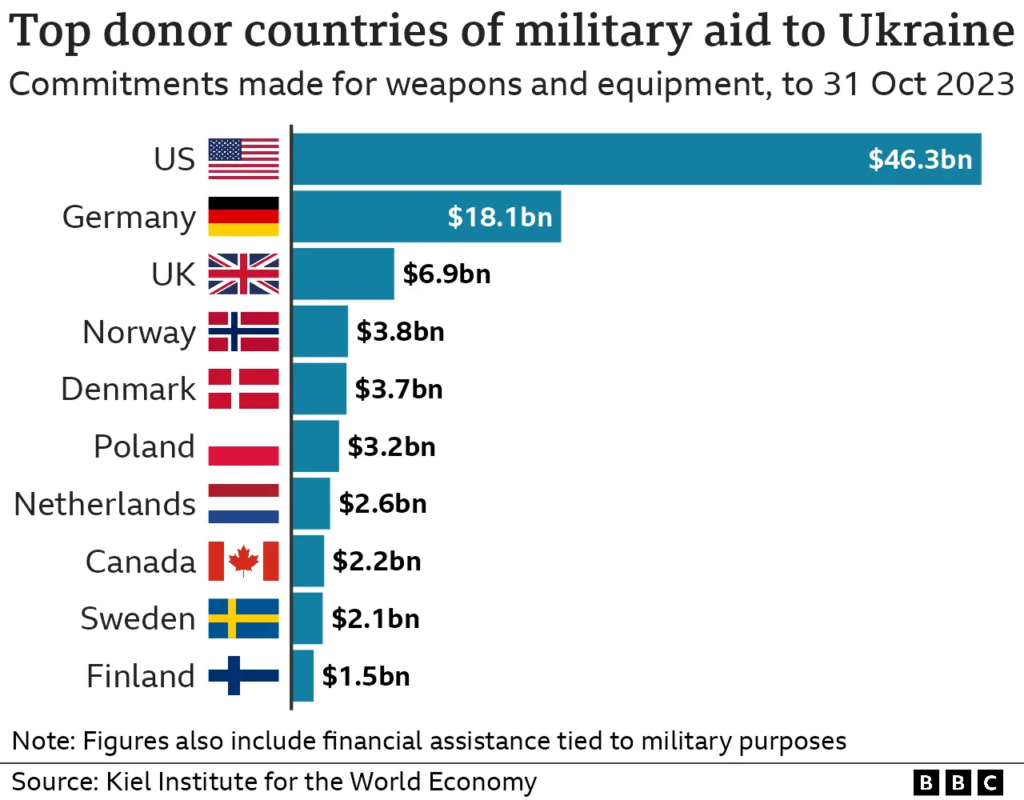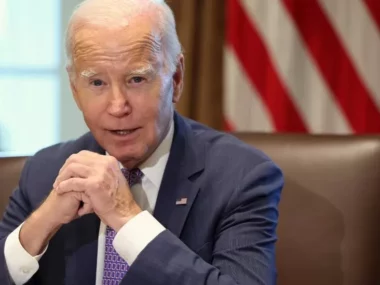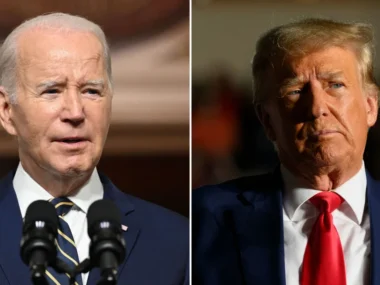The White House has given its approval for an additional batch of US military assistance to Ukraine, amounting to approximately $250 million (£195 million).
The most recent package comprises air defense, artillery, and small arms ammunition, along with anti-tank weapons, according to statements from US officials. However, it is worth noting that this marks the last available funding without fresh approval from Congress. Talks in Congress have stalled on this matter.
Ukraine has expressed concerns about the potential risk to its war effort and public finances if further Western aid is not provided. Ukrainian officials are currently facing the possibility of a slowdown in aid from Washington and European allies, as their counter-offensive in the eastern part of the country has stalled, and there has been little change in the line of control.
Although the Ukraine war effort enjoys broad support in the US Congress, there is disagreement over further arms aid. Republicans insist that stricter security measures on the US-Mexico border must be included in any military aid deal. An emergency spending measure that would have provided $50 billion for Ukraine and $14 billion for Israel was defeated in the Senate, with every Republican voting against it, along with Bernie Sanders, an independent who typically aligns with Democrats but expressed concerns about Israel’s actions against Hamas. A subsequent visit by Ukrainian President Volodymyr Zelensky failed to persuade lawmakers.
The recent announcement regarding aid to Ukraine involves withdrawing weapons from existing Pentagon stocks, a move that does not require Congressional approval. Secretary of State Antony Blinken emphasized the importance of Congress acting swiftly to advance national security interests by assisting Ukraine in defending itself against Russia’s aggression.
Earlier this month, a €50 billion EU aid package for Ukraine was blocked by Hungary. Ukraine faces a $43 billion budget deficit and may need to delay salaries and pensions for government employees if further aid from the West is not provided soon.
Ukraine’s Deputy Prime Minister Yulia Svyrydenko stressed the critical nature of partner support and the urgency of receiving it. Talks are reportedly progressing on a smaller aid package that would not require Hungary’s approval, with potential consideration in early February.
As Western aid to Ukraine has slowed, Russian forces have continued their operations in the eastern part of the country, including the recent seizure of the key town of Mariinka.












